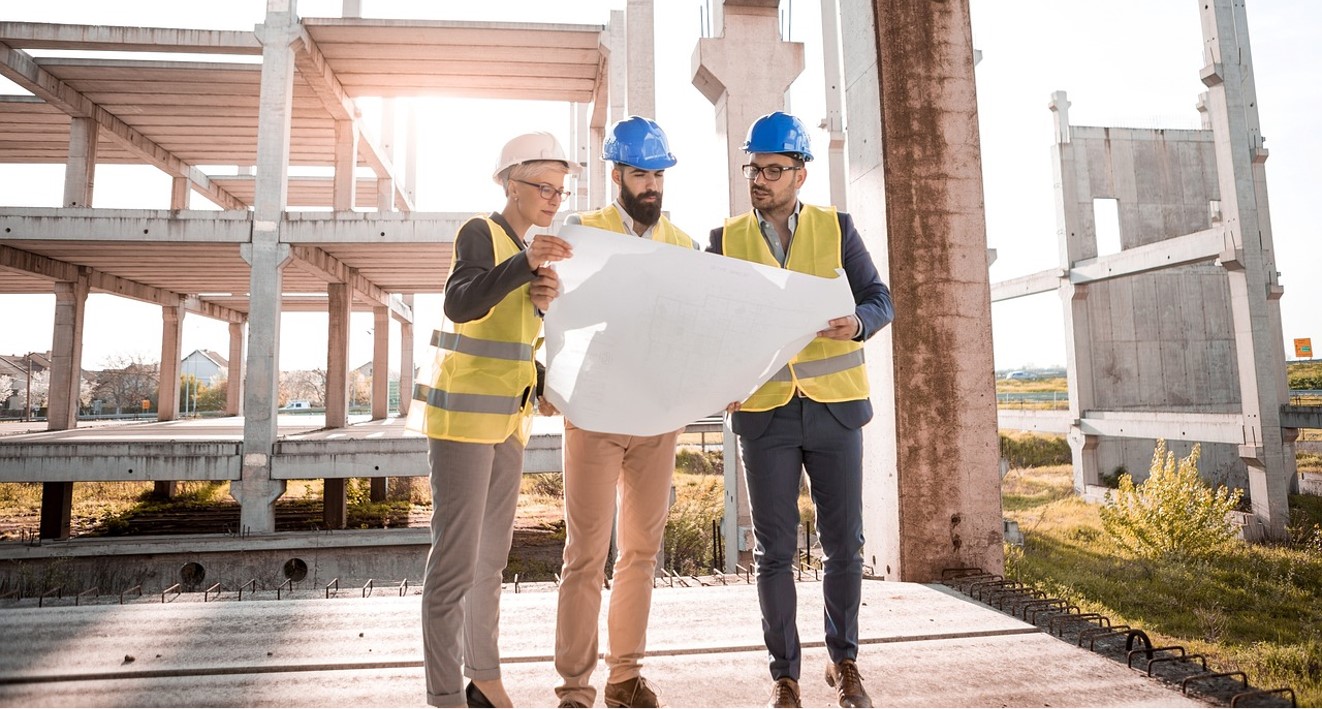The construction sector is amid a transformation to adapt to sustainability and safety requirements, meet regulatory changes and deal with demand variability. Digitalization emerges as a potential solution as it leverages technologies such as artificial intelligence and the Internet of Things, promising improved efficiency and quality. However, the adoption of these innovations requires effective change management.
Main challenges affecting the construction sector
Sustainable construction
The growing concern for sustainability represents an additional challenge for companies in the sector. Considering the global sustainability goals that dominate political, business and societal agendas, the construction sector is committed to this trend, embracing sustainable materials, focusing on energy efficiency, renewable energy use, and waste reduction. A culture of continuous improvement facilitates adopting sustainable construction, since reducing consumption and increasing efficiency will contribute toward the company and the sector’s green goals.
Limited affordable housing
The housing stock levels are low, which is likely to worsen as purchase and rental prices rise. Giving a solution to this crisis is challenging for both the government and the construction industry. One potential solution would be to build smaller and more efficient housing, and reuse and refurbish existing properties.
Restoration and renovation of historic buildings
This highly specific segment should not be disregarded as it is in increasing demand. Eventually, it will drive many businesses into specialization.
Digitalization as a tool to meet challenges
Any of the above challenges require high performance and efficiency from the company.
Investing in digital transformation will only enhance the benefits of a well-executed KAIZEN™ project management in terms of costs, time savings and increased productivity.
Proper change management for digitalization implies that technology is not as important as a good understanding of the company’s situation and the drivers of improvement and development. In other words, this means identifying the resistance to change within a company, the business model, and how to optimize the organization’s processes and structures.
An optimal transition should be executed sequentially in sprints or phases so everyone adapts progressively. The main tools for the construction industry are as follows.
Advanced technology
It allows for improving the efficiency and accuracy of projects with tools such as Building Information Modeling (BIM) technology, which creates a three-dimensional digital model of a construction project. This is achieved through a collaborative design and construction process, and virtual buildings and infrastructures management, allowing to anticipate potential problems before building, reducing costs and errors. 3D printing is another tool available.
Digitalization and automation
With tools such as artificial intelligence and virtual and augmented reality, the industry will benefit from a production standpoint (being able to visualize the project in 3D before it is built, facilitating decision-making based on comprehensive data) and from training its collaborators and professionals.
The industry will also be able to turn to robotics and the use of RPA systems, enabling the automation of repetitive processes within the company and efficient data management through Data Analytics.
In addition, it will also benefit from project management systems and IoT, which will enable sensorizing and monitoring buildings’ performance (optimizing their performance and predictive maintenance) and even the use of drones.
Continuous improvement, the key to the construction sector’s survival
Besides the aforementioned challenges, tools and the importance of a robust business approach, construction companies should not only focus on optimizing their overall plan and accessibility of resources but also on promoting efficient communication and team development.
A complex construction project involves many people, so seamless communication will be critical to its good management – a project that generates synergies among all participants and ensures the quality of the work, reducing delays and additional costs.
Construction companies can improve their ability to overcome challenges, drive successful projects and thrive by focusing on a solid commercial approach, optimizing the overall plan and accessibility to resources, and promoting effective communication and team development. By adopting these strategies, together with the digital transformation and sustainability actions mentioned above, construction organizations will empower themselves for long-term growth and success in a constantly evolving market.
See more on Digital Transformation
Find out more about transformation in this sector
See more on Construction
Find out more about transformation in this sector
